: US Treasury yields hit their highest in three weeks on Monday on signs that the US Senate was edging closer to a deal on the fiscal crisis which has paralysed part of the government. But US credit default swaps and short-term interest rates remained elevated, showing investors were still pricing in some possibility of a US default.
US Senate Majority Leader Harry Reid, a Democrat said after a day of talks on Monday with his Republican counterpart, Mitch McConnell that they had made "tremendous progress" and suggested a deal could come as early as Tuesday. "The news out of the US with indications that a deal is imminent ... is pushing yields higher across the board. So not only in the US but you see the same pattern in Europe," Commerzbank senior interest rate strategist Michael Leister said.
Investors sold safe-haven Treasuries, taking the 10-year US yield to its highest in three-weeks at 2.74 percent. It was last up 4 basis points at 2.72 percent while the 30-year equivalent rose 3 bps to 3.77 percent. But interest rates on short-term Treasury bills were near their highest since the 2008 financial crisis and the cost of insuring against a US default near its highest since 2011.
"We had basically a similar scenario at the end of last week, when it seemed that a deal was imminent and we didn't get it in the end," Leister added. That scepticism was partly reflected in credit default swap prices. The cost of insuring against a US default for one year was 29 bps higher than over five years. At 65 bps, one-year CDS was just 10 bps below last week's peak - its widest since 2011, according to Markit. It is normally costlier to buy longer-term credit protection. The current curve inversion - considered a sign of credit stress - reflects investors' concern over the potential for a short-term default.
SHORT-TERM Even if the two sides agree to raise the US debt ceiling by enough to cover the country's borrowing needs at least through mid-February 2014, as a source familiar with the talks said on Monday, it would only be a short-term solution. "There seems to be some progress being made but the solution that is being proposed is far from perfect. It's short-term, it's just pushing the problem further along for a few months," Philip Tyson, strategist at ICAP said.
Yields on Treasury bills maturing on November 29 were at 0.17 percent, off a 0.26 percent high on Friday and up from only 0.01 percent in late September. One-month Treasury bills that come due on November 7 yielded 0.27 percent, little changed from Friday. Yields hit 0.36 percent last week - their highest since the 2008 financial crisis. They were just 0.03 percent at the end of last month. "...the late November and December T-bill prices are cheapening because it simply pushes the default risk forward," Societe Generale said in a research note about a temporary deal. "Investors who believe there will be an extension - and we do - should buy October - early November maturing bills."
BR100
16,405
Increased By
92.5 (0.57%)
BR30
52,938
Increased By
579.1 (1.11%)
KSE100
158,781
Increased By
743.5 (0.47%)
KSE30
48,500
Increased By
249 (0.52%)






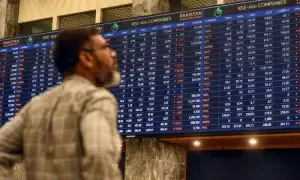
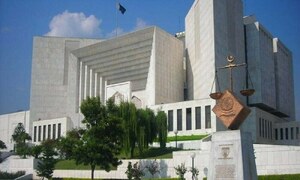





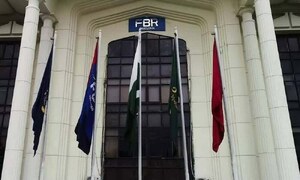



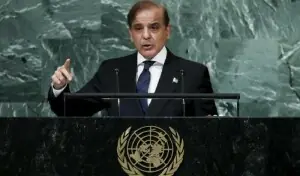


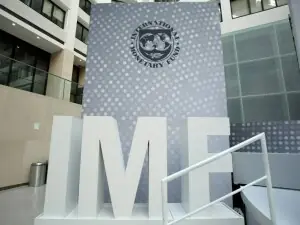
Comments
Comments are closed.